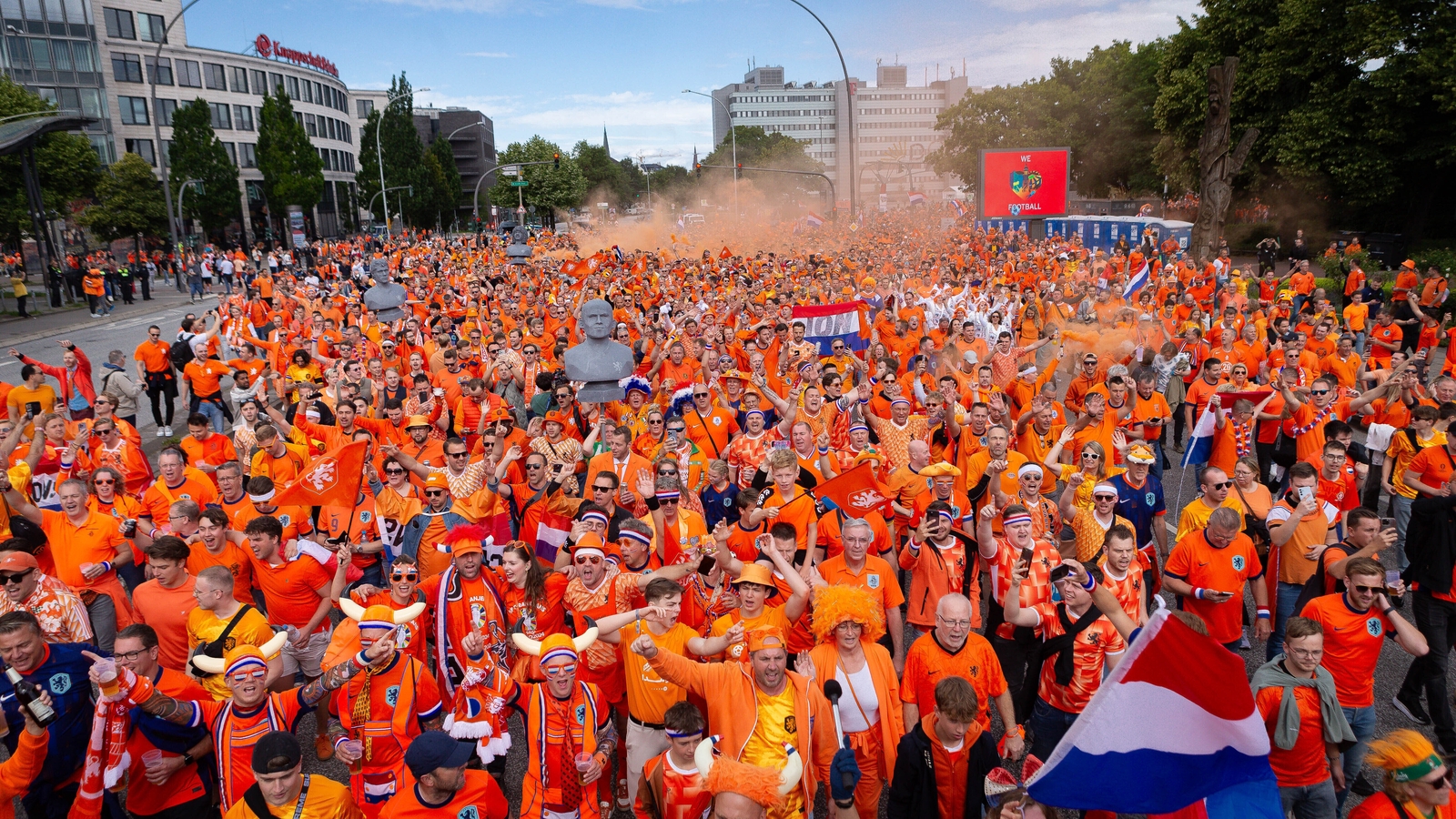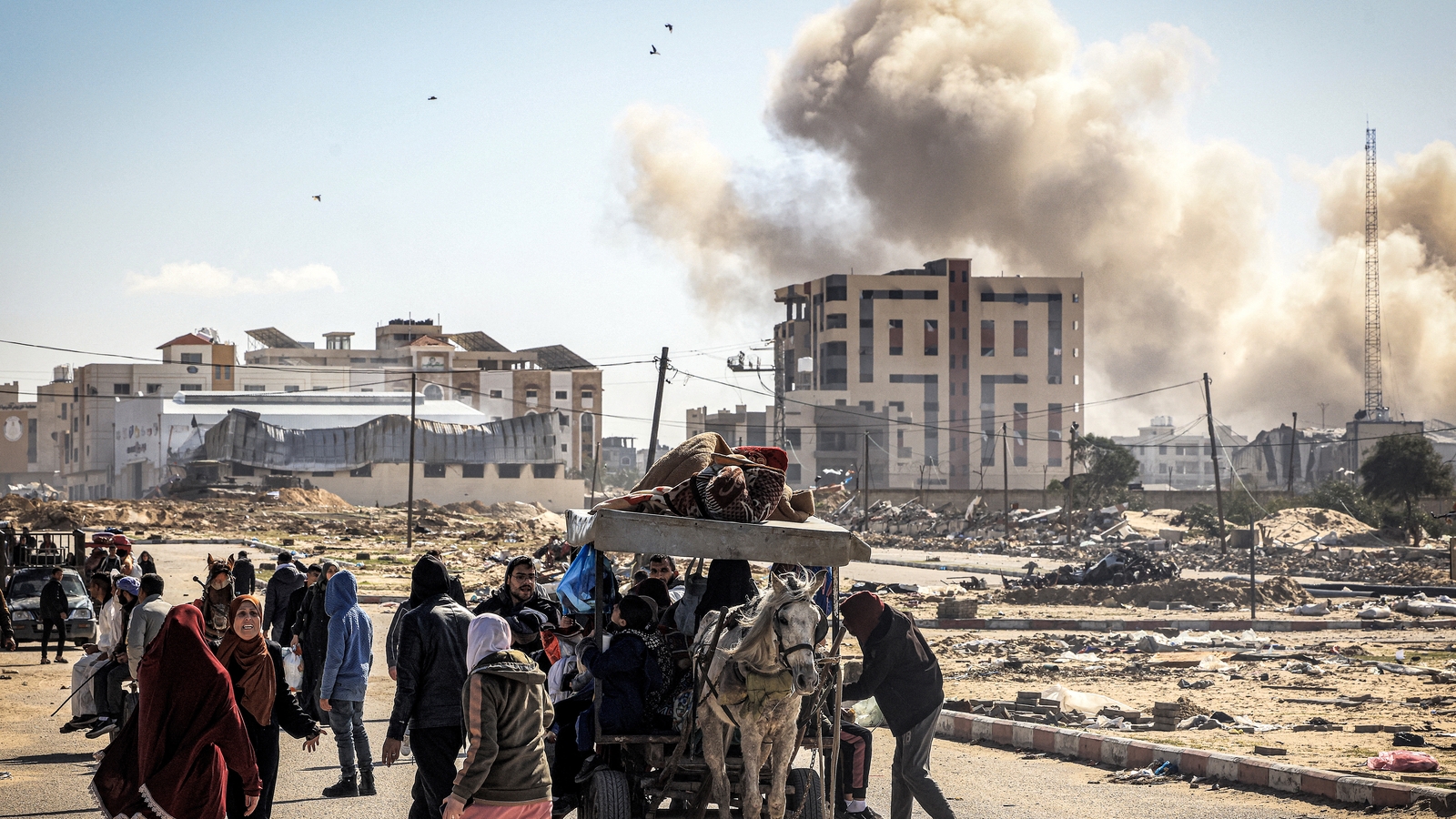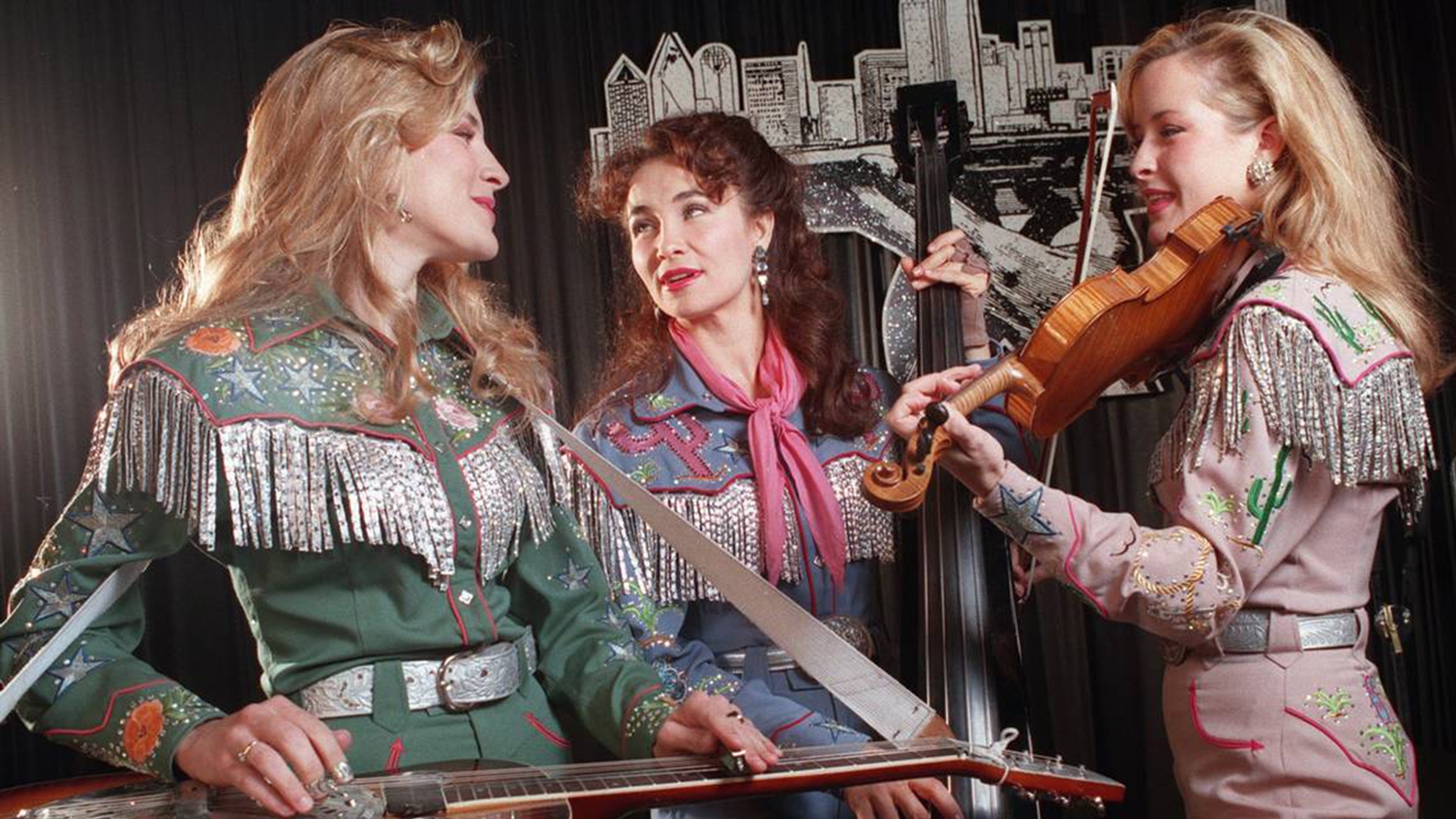Irish rugby thrust into role of pantomime villain
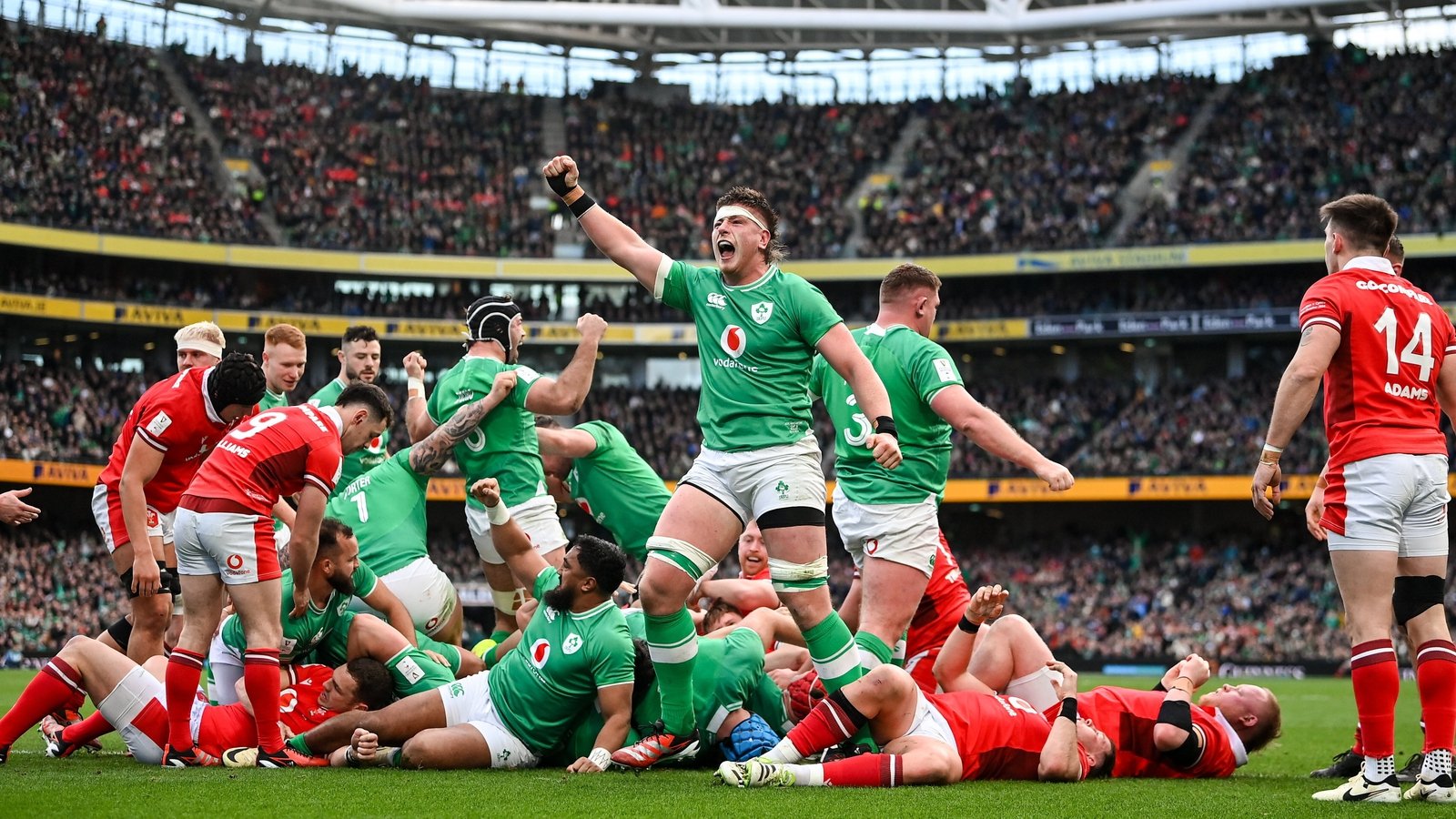
Two rounds remaining in this underwhelming Six Nations, and the consensus is that Ireland are bouncing happily towards their second successive Grand Slam, becoming the first nation to achieve the feat since the turn of the century.
They progress to this historic goal with the near unanimous badwill of their neighbours, especially those of the Celtic variety.
As it stands, Irish rugby fans are already resigned to the reality that if they do complete the back-to-back Slam, all they will hear in response is ‘*cough, quarter-final.’
“Well, Hamish, what are your thoughts on Ireland’s second successive Grand Slam?
“Thanks Gregor, well first off I’d like to say quarter-final, quarter-final, quarter-final. You’ve got to hand it to quarter-final, quarter-final. On the other hand, going forward, quarter-final, quarter-final, quarter-final.
“So, in summing up, I would say quarter-final.”
In Rugby Pass, French-based rugby writer Gavin Mortimer dismissed this “largely irrelevant Six Nations” and said that “the Irish can win as many Grand Slams as they want, but they’re all meaningless if they can’t make an impression at the World Cup.”
Six Nations tournaments immediately following World Cups can often be downers and not even the spectacle of Ireland mowing through the opposition can rescue that.
The French are in one of those moods where their heart isn’t really in the spring jamboree, it having been ripped out by Cheslin Kolbe and co last October. Their greatest player, Antoine Dupont, is currently tricking about with the Sevens ahead of the Olympics.
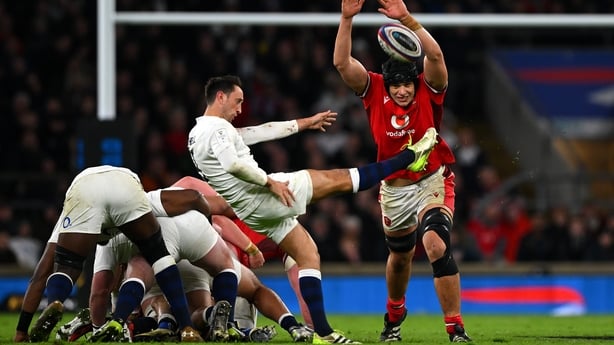
England are proudly limited in their approach. Approximately, 40% of their matches consist of their scrum-half Alex Mitchell methodically rolling the ball back to himself with the sole of his boot, underneath a hastily assembled human chain of crouched back-row forwards, their backsides cocked in the air. He then hoikes it up in the sky for Freddie Steward to hare after.
Watching England in the past year has been a bit like watching a man unroll a length of carpet with his toe for an hour.
Wales are deep into an extremely difficult transition period, while the Scots fumbled the ball again, losing to an absent-minded French outfit in Murrayfield – albeit unluckily.
That only leaves Ireland currently ripping their way through the field.
As we know from Gaelic games – from Clare in the 90s, from Tyrone in the 2000s, from Limerick now – the only thing rival fans hate more than a traditional oppressor is a nouveau riche oppressor. [“They wanted us to go back to the traditional music,” Dalo was inclined to observe by 1998.]
Ireland’s transformation from cheerfully shambolic ‘boot, bollock and bite’ merchants into the latest PhD case study in how to build winning sports teams does seem especially offensive to the Welsh, in particular.
If Ireland do win their next two games, they will manage a feat that eluded the Wales team of the 1970s, the most heavily romanticised team in the history of the oval ball game.
Gareth Edwards, Barry John et al never managed back-to-back Grand Slams (winning them in 1971, 76 and 78), though they might have had they braved the trip to Ireland in 1972.
Neither did that Wales team register a win over New Zealand, though in Slammed, the BBC’s beautifully evocative documentary exploring Welsh rugby through the decades, they treat the 1971 Lions and the 1973 Barbarians as a proxy for ‘Wales’, despite the presence of Mike Gibson, Fergus Slattery, Ray McLoughlin and several others right there in the starting team.
It’s six-and-a-half years since Philip Browne, in a fit of browned-off-ness, made an official play to re-order our hierarchy of antipathy when he declared that “when the chips are down, the one country that always supports Ireland is England” in contrast to the two grasping Judases (paraphrasing) that nestle beside them on the same landmass.
Six years on, that antipathy is being returned with interest from the other direction. We can assure you there will be much rejoicing if Ireland come-a-cropper in Twickenham this Saturday and not just among the English rugby set.
Sure, the casual Welsh fan, with less time in their life for online sniping, is probably still prone to antiquated guff about only wanting to beat England and forget the rest.
It is the settled opinion of Welsh rugby’s heavily online contingent that Ireland haven’t won a game of rugby football without the ref’s help since the early noughties
But the cutting edge Welsh fan, the up-to-speed Welsh fan, the Welsh fan who spends his days arguing about the deficiencies of the WRU – that chap now despises Ireland with a molten passion.
And in many cases, will spend the aftermath of the latest double-digit defeat producing compilation videos of Ireland’s alleged corner-cutting at the breakdown – committing wholesale copyright infringements in the process.
It is the settled opinion of Welsh rugby’s heavily online contingent that Ireland haven’t won a game of rugby football without the ref’s help since the early noughties. And the weekend before last witnessed an orgy of complaint that was extreme even by those standards.
In Wales, there is considerable resentment of the Dublin schools game, which they argue amounts to a government-subsidised academy structure for the Leinster rugby team, a phenomenon which Wales doesn’t have the wealth to match.
Their under-resourced regions are currently trapped in the URC, where they are routinely pummeled into the dirt by a youthful bunch of ‘possibles’ from this side of the water. It feels like every six months the ancient dream of an Anglo-Welsh league is floated, where they would no longer have to ship regular poundings in the RDS and could instead re-awaken age-old rivalries with historic clubs across the Severn Bridge.
Related to this, there is understandable annoyance at the size of Leinster’s wage bill, in particular, and the secrecy that surrounds it. Between centrally contracted players and those on provincial contracts, their wage bill is said to hover somewhere between 11 and 14 million.
Then there’s the media question.
Notwithstanding our own love of ‘what the foreign press are saying’ content, the Irish media has not, until recently, been accustomed to the idea that anyone outside of Ireland was paying attention to them.
That has assuredly changed now. The more Ireland’s stock has risen in rugby union, the more the rest of the sport wishes to take note of what is said here.
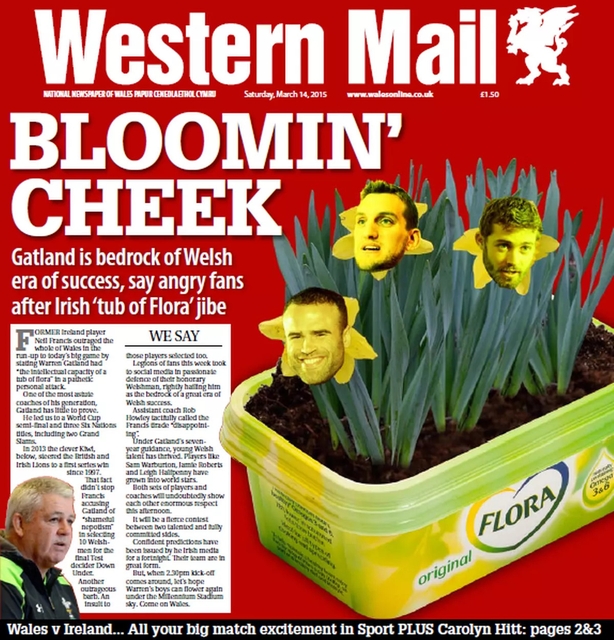
There was an initial flare-up back in 2015 when Neil Francis compared Warren Gatland’s intellect to a tub of Flora and our consul general in Cardiff was almost summoned to the First Minister’s office for a dressing down.
Since then, Wales Online and the Irish media have spent the week of their annual Six Nations game eyeing each other hungrily for hate-reading material.
Eamonn Sweeney in the Irish Independent obliged them with some killer rage-bait this year when he predicted that Wales and Scotland’s days of challenging for the Six Nations were over for good.
Basically, that Welsh fans should spare themselves the indignity of the next few Ireland-Wales Six Nations games and stick on a Gareth Edwards greatest moments compilation video on YouTube instead.
(As regards surveiling the Irish media for offence, the early indications are that the South Africans are a whole other level. Judging by the Youtube comments underneath our rugby podcasts, it would seem entirely families in Bloemfontein sit around the dinner table, continually hitting refresh on the laptop until another pod drops.)
We should acknowledge here that the view that the Irish rugby fans and media are insufferable is of course not confined to those outside Ireland. Irish soccer fans – particularly of the LOI/ left-leaning disposition – are probably in alliance with rival rugby fans on that. Even within the rugby family, the Irish squadron relishing in turning on each other for internecine provincial rows when the Test tent is folded up.
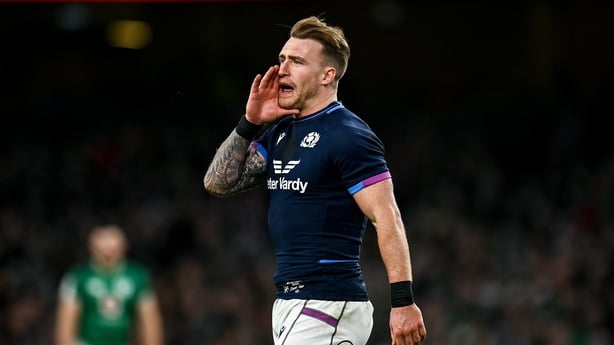
The Scots, for their part, are irritated – and somewhat bemused – at the narrative in Ireland that they are full of themselves, which appears to be based on some overtly bullish Stuart Hogg quotes from a few years ago. Eddie O’Sullivan had to conduct a brief podcast apology tour after branding the Scots “deluded” after 2020 Nations Cup game.
They have countered with their own accusations of arrogance, finding the current Irish superiority complex hard to stomach.
The head-to-head record between Ireland and Scotland is fast approaching Jimmy Connors-Vitas Gerulaitis territory. It’s so hard to stay humble vis a vis a team you keep beating time and again with plenty to spare.
And Ireland call Scotland arrogant 😂
Never thought I’d like an England side over an Irish team but it’s happened. Come on England!! pic.twitter.com/5ydx20G2HS
— Ruaridh Jackson (@ruaridh_jackson) March 6, 2024
Curiously, the edge between the two teams seems to extend to the players and not just the fans. Peter O’Mahony’s particularly salty post-match interview after the World Cup pool game in October would certainly not be standard practice.
But then there is a long tradition of sportsmen who’ve regularly won silverware taking umbrage at the pretensions of those who haven’t. We could call it the ‘F**k-off-Scales-with-your-England-B-cap’ tendency. (In a World Cup context, the reported goading from the All Blacks towards the Irish players at full-time last October may be borne of the same mindset.)
In response, the Scots naturally reach for the World Cup record to needle back.
For the purposes of online oneupmanship, Scotland’s 1991 victory over Western Samoa now stands as the most important victory in the history of Scottish rugby, and probably should be the subject of future heroic documentaries instead of the 1990 Grand Slam game.
It does take a fair degree of neck for Scotland to be chiding the Irish about their World Cup record given they’ve been eliminated at the pool stage – in part, by Ireland – in the past two competitions. But then what are fans for if not crafting narratives in which their rivals are frustrated losers and forever a standing punchline.
The quarter-final stock response will be continually invoked the more Ireland win and win. In the meantime, all the fans can do is embrace the hate.
Listen to the RTÉ Rugby podcast on Apple Podcasts, Spotify or wherever you get your podcasts.
We need your consent to load this YouTube contentWe use YouTube to manage extra content that can set cookies on your device and collect data about your activity. Please review their details and accept them to load the content.Manage Preferences
Watch England v Ireland in the Guinness Six Nations on Saturday from 4pm on RTÉ2 and RTÉ Player, follow a live blog on rte.ie/sport and the RTÉ News app and listen to live commentary on RTÉ Radio 1
Watch Wales v France on Sunday from 2.30pm on RTÉ2 and RTÉ Player

